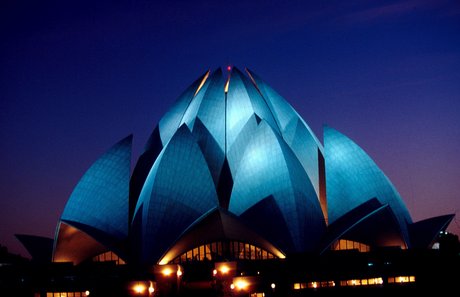A BEAUTIFUL piece about resilience in the face of difficulties from the excellent blog Baha'i Perspectives.
Posted: 14 Apr 2009
You will have to forgive me if this is against proper netiquette, but I am going to blog about one of my own articles. It's one I wrote about after a trip to flood-affected areas of northern Namibia, telling the story of Helvy, a 84-year old great grandmother. I met her in a relocation camp, where her village had moved after their homes were submerged when the nearby river burst its banks.
Almost six hundred people are living in the camp, five or six families in each tent. They have to sleep on the hard ground, and at night when it gets colder, only a few have blankets to cover them. There are two taps in the whole camp, and the Red Cross has built three temporary toilets on the outskirts. They have lost not only their homes, but also their fields of maize and sorghum. So, not only is this year's harvest gone, but next year's one is lost too, because the seeds for next year come from this year.
 I met Helvy during our brief visit to the camp, a little bit after midday. She was dressed in what I suspect is her best dress, accessorised with a beautiful long handmade bead necklace. There had been a state visit earlier in the day, and the whole camp was spick and span. Helvy was sitting outside her tent, cradling a sleeping child in her arms. I don't know if it was one of her own great-grandchildren, but from the number of children clustered around her tent, I think she must be a child-magnet.
I met Helvy during our brief visit to the camp, a little bit after midday. She was dressed in what I suspect is her best dress, accessorised with a beautiful long handmade bead necklace. There had been a state visit earlier in the day, and the whole camp was spick and span. Helvy was sitting outside her tent, cradling a sleeping child in her arms. I don't know if it was one of her own great-grandchildren, but from the number of children clustered around her tent, I think she must be a child-magnet.
Through an interpreter, she told me about the night they had to abandon their home and escape to the camp. She told me that they had lost most of their possessions and their food and about how scared she had been. Then she gave me a blinding smile, and said "But I am blessed. My family is safe, I am safe, and we are together. I am very thankful to God".
I was taken aback. After all this hardship, shouldn't she be bitter and miserable? Shouldn't she be bemoaning her fate, instead of being thankful? I kept thinking about her all day, humbled by her radiant acquiescence, her detachment from material things, and her love for her family. She seemed to epitomise what the Baha'i Writings tell us about tests and difficulties:
For what can dark doubts do with the light of guidance, or clouds with the shining moon? Tests and trials only cause agitation to weak hearts. But the pure souls, a hundred thousand tests are but to them like mirage, imagination and shadow.
Praise be to God that thou hast kept steadfast with all firmness under the millstone of tests like unto a grain of diamond. Be not grieved; tests lead to the development of holy souls and the ardor of the flame of fire causeth the pure gold to shine and the violence of winds is conducive to the growth and thriving of a firm and well rooted tree.
So the next time there is a blip in my ordered life, and things do not go as planned and I begin to feel sorry for myself, I hope I will remember Helvy and her blinding smile.
 Recently, my husband and I were on a long road trip using the cheapest rental car we could find. As a result of our thriftiness, we had a car with only radio access (no ipod connection), which made for some meaningful one-on-one conversation. After a good thirty minutes of talking about work and our to-do-lists and so on, we started to get more creative.
Recently, my husband and I were on a long road trip using the cheapest rental car we could find. As a result of our thriftiness, we had a car with only radio access (no ipod connection), which made for some meaningful one-on-one conversation. After a good thirty minutes of talking about work and our to-do-lists and so on, we started to get more creative.


